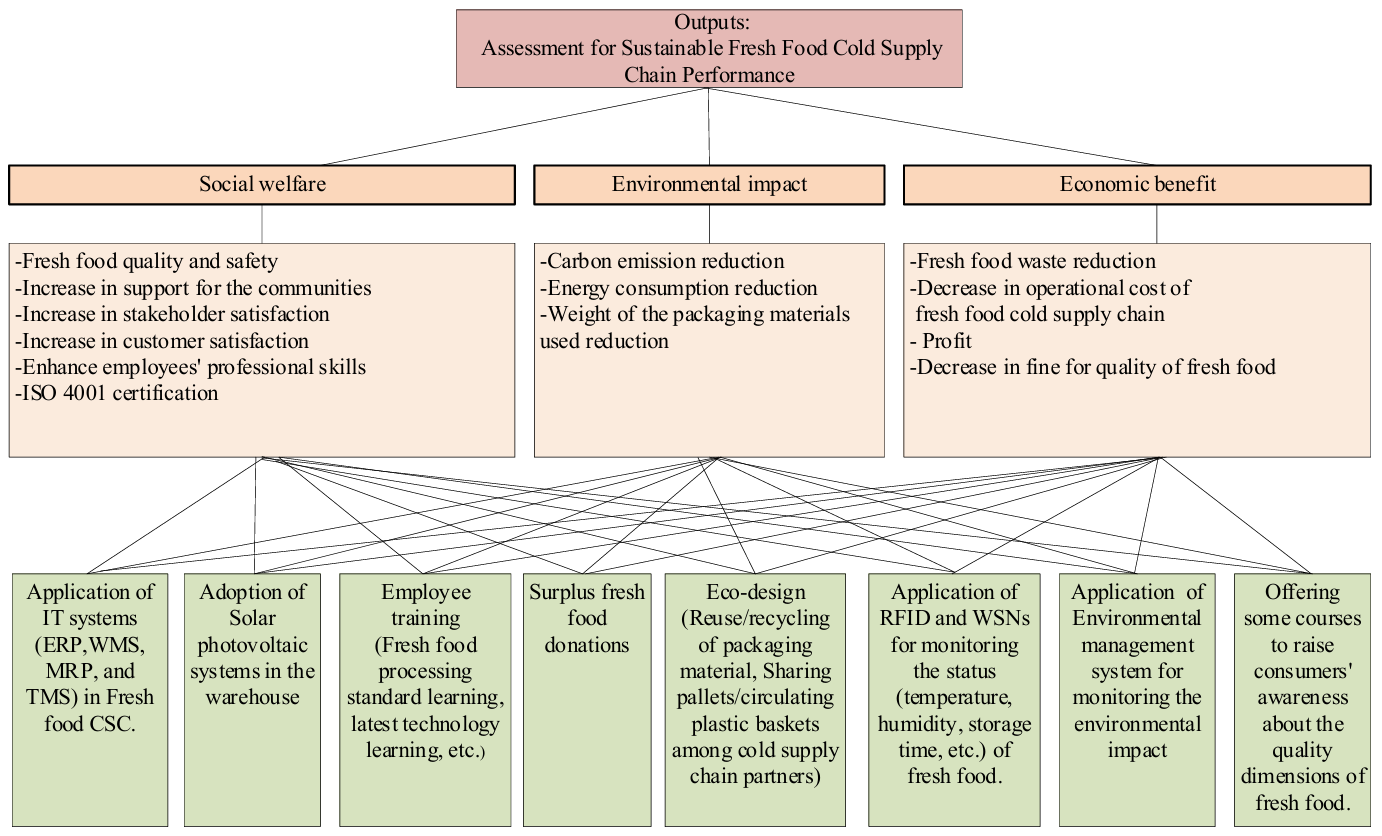April 20, 2023 | Journal of Cleaner Production | Source |
Introduction: Fresh food cold supply chains (CSCs) in developing countries face major sustainability issues, including food waste, high energy use, and weak economic viability. Addressing this gap, researchers from the University of Padova (Italy) and Guangzhou University (China) investigated how good practices from developed nations could improve CSC sustainability in China. The study adopts the Triple Bottom Line (TBL) framework, evaluating performance across economic, environmental, and social dimensions. It employs a hybrid analytical hierarchy process (AHP) and fuzzy TOPSIS method, incorporating expert input from China's fresh food CSC sector.
Key findings: Eight good practices from developed countries were assessed for their relevance to China’s CSC context. Employee training emerged as the most impactful, enhancing operational skills, reducing food loss, and improving regulatory compliance. RFID and WSN technologies ranked second for enabling real-time condition monitoring, which helps reduce waste. In contrast, surplus food donations had the least impact, suggesting limited systemic influence despite popular perceptions. Sensitivity analyses supported these rankings across varying performance-weighting scenarios, reinforcing the value of investing in workforce development and digital monitoring tools. Among the TBL dimensions, economic performance was prioritized highest, followed by environmental and then social (Ec > En > So). This reflects China's emphasis on cost efficiency and energy concerns, as CSCs are responsible for around 30% of global energy consumption—much of it from fossil fuels. Future research should validate these findings empirically and explore practical strategies for implementing these good practices in China’s fresh food CSC sector.

Figure | A conceptual sustainability performance structure.





